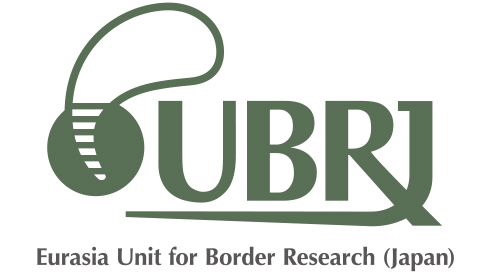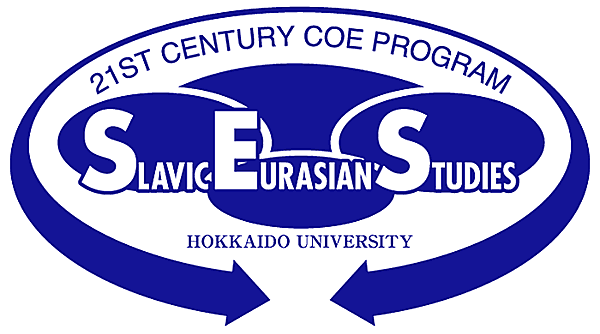About the SRC
Outline
Research activities
I
nternational Symposia
Every year, the SRC holds two international conferences: in summer and in winter. More than 100 specialists participate in the symposia, which have become major annual events of the SRC. The papers presented at these symposia have been published as proceedings and in other forms. At these symposia great importance is attached to discussion. Thus, full texts of papers are submitted prior to the symposium and are delivered to all participants through the SRC website. The titles of the international symposia in recent years (2011-2016) are shown below. In addition, the SRC organizes occasional seminars and discussions on specific topics.
Past International Symposia
2024 / winter / Languages, Nations and Standardization in Slavia: So Similar and Yet So Different
2024 / summer / The Crucible of a New World? Russia’s Borderlands at the Dawn of the Twentieth Century
2023 / winter / Borders, Boundaries and War across Eurasia: Cycles of Violence and Resilience
2023 / summer / The Phase of Catastrophe: The Crisis of the 14th Century in Afro-Eurasian Context
2022 / winter / Above the Permafrost: How Climate Change and Resource Development are Changing Local Life in the Arctic
2022 / summer / Melodrama and Melodramatic Imagination in Russia: New Perspectives
2022 / summer / An Anarchist Turn? Imperial Rule and Resistance in the Long Twentieth Century
2021 / winter / Authoritarian Governance: Institutions and Strategies
2021 / summer / Slavic and Eurasian Studies in Times of Uncertainty: Dialogue and Reappraisal
2020 / summer / Northeast Asia: Pitfalls and Prospects, Past and Present
2019 / winter / Tsars’ Regions between Literary Imaginations and Geopolitics
2019 / summer / Global Crisis of Democracy? The Rise and Evolution of Authoritarianism and Populism
2018 / winter / Languages Rising above Empires, Blocs, and Unions 1918–2018
2018 / summer / On Land, Water and Ice: Indigenous Societies and the Changing Arctic
R
esearch Staff Seminar
Every research staff member is obliged to give a paper at this seminar once a year. The paper is based on his/ her latest research activities and is distributed to other staff in advance before the seminar. Every staff member provides comments about the paper, and an independent specialist on the topic is invited from outside the SRC to the seminar. This unique seminar not only functions as a self-assessment of the SRC member's academic activities, but bears significant meaning for the Center to achieve highly advanced interdisciplinary area studies.
E
urasia Unit for Border Research
UBRJ (2014~)
The Eurasia Unit for Border Research is a research unit for the promotion of border studies in this academic field and has the Slavic-Eurasian Research Center established in April of 2013 as its staff office. Members are not only instructors of the center, but also include instructors active in border studies in different departments of arts. UBRJ serves as the leader of border studies in this country since the end of “Reshaping Japan’s Border Studies” and is a hub for communities of Asian and Western border studies.
 WebsiteURL
WebsiteURL
http://src-h.slav.hokudai.ac.jp/ubrj/
C
hanges in the Slavic Eurasian World:
Conditions of Self-existence and Co-existence
Priority Research Project(2008-2013)
In relation to the huge area of the Slavic-Eurasian region, which experienced unprecedented historical upheavals such as the destruction of the USSR and the communist party regime, the revolutions of 1989, intensification of ethnic conflicts, and the end of the Cold War between East and West, the “Changes in the Slavic-Eurasian World: Conditions of Self-existence and Co-existence” (1995-1997) organized with the Slavic Research Center playing a central role mainly focused on identifying the differences between before and after the upheavals and the type of conditions and possibilities there are in the future for the self-existence and co-existence of each nation, ethnicity, and society. The research consisted of three columns, namely “Politics” (transformations and inter-regional relationships of political systems), “Economy” (conversions of economic systems and formations of new economic zones), and “Culture/ethnicity” (social changes and self-awareness), and the various aspects (actual situations, meaning, influence, future direction, etc.) of the changes were analyzed from the technically specialized perspectives of each.
C
omparative Research on Major
Regional Powers in Eurasia
Scientific Research on Innovative Areas(2008-2013)
This is a type of Grant-in-Aid (Kakenhi) program newly initiated in 2008 under the Ministry of Education, Culture, Sports, Science and Technology (MEXT) in Japan. The project, "Comparative Research on Major Regional Powers in Eurasia" (2008-2013), organized mainly by the SRC, had the aim of establishing a new viewpoint by inserting regional powers (Russia, China, India, etc.) as an intermediary layer between superpower and ordinary states and analyzing pressing issues in the contemporary world from this vantage point. Therefore, six planned research groups based on international relations, domestic politics, economy, society, history and culture are created with researchers on Russia, China and India placed in the respective groups. Eurasian Regional Powers Series have been published as its achievement.
 WebsiteURL
WebsiteURL
http://src-h.slav.hokudai.ac.jp/rp/english/index.html
M
aking a Discipline of Slavic Eurasian Studies
21th century COE program(2003-2007)
The 21st century COE program was established based on the “policies of structural reform of universities” in 2002 as a project (funded by research base formation subsidy) under the MEXT. “Making a Discipline of Slavic-Eurasian Studies: Formation of a Mid-range and Globalization” (2003-2007) organized with the center, which has been leading research of the Slavic region in Japan playing a central role, configured regions in a flexible manner in consideration of internal, external, and time-related factors instead of configuring regions according to boundaries set by conventional fixed geographic borders and attempted to capture the reality of the regions undergoing change due to such. Coordination and interaction with researchers from the Slavic region and other regions were promoted, a network was established, and new research methods and concepts of “Major Regional Powers” and “Border Studies” were born.
 WebsiteURL
WebsiteURL
http://src-h.slav.hokudai.ac.jp/rp/english/index.html
R
eshaping Japan’s Border Studies: Slavic Eurasian World
Global COE Program(2009-2014)
This program was established in 2007 under the MEXT for the purpose of elevating the international competitiveness of Japanese universities and researchers. The project, "Reshaping Japan's Border Studies"(2009-2014), organized mainly by the SRC, had the aim of analyzing such border issues as the territorial disputes, cultural frictions, etc. prevalent throughout the Eurasian region, by taking both reality and representation into consideration as well as establishing new research areas and research center to tackle border issues. Furthermore, a course of "Border Studies" was opened to applicants from inside and outside the University. The research accomplishments were publicized widely through museum exhibition and policy recommendation.publicized widely through museum exhibition and policy recommendation.
 WebsiteURL
WebsiteURL
http://src-h.slav.hokudai.ac.jp/BorderStudies/en/index.html